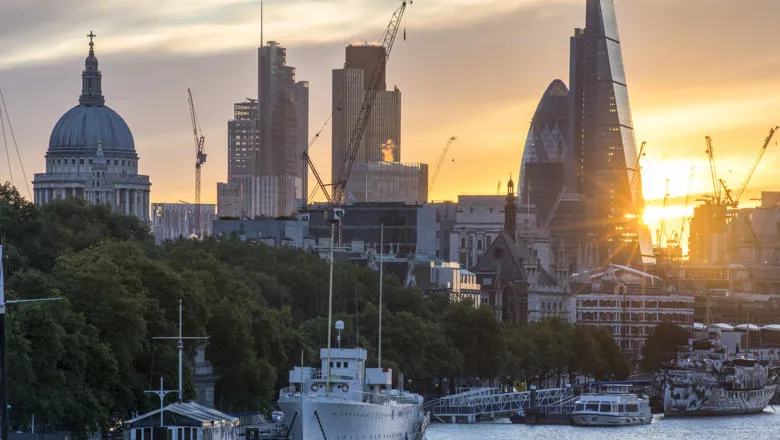05 December 2023
How to secure London's prospects to 2030 and beyond
Tony Halmos
The capital's economy has remained robust – but further action is needed

During the past 15 years the economy of London and the whole UK has been battered by many challenges – first the financial crisis, then Brexit, the Ukraine war, and the cost of living crisis. Recent research by the Policy Institute at King’s College London shows that the UK capital has survived this more robustly and successfully than was expected.
In 2018 the institute published research projecting London’s economic prospects up to 2030. This envisaged four scenarios depending on two crucial variables: how open to the world London’s economy would remain and how supportive of London’s economic prospects the UK government chose to be. A single scenario was not chosen at that point.
In the latest research this choice is made. The capital’s position in 2030 is expected to fit the best scenario, but the actual projected outcome is not as strong as was originally envisaged for this scenario. Thus, in short, London has faced the challenges successfully, but its prospects have nonetheless been weakened by them.
The capital’s share of UK output under this scenario was previously projected to be 27% by 2030 but has since been revised down to 26%. Similarly, London’s estimated share of overall UK employment at the end of the decade has declined slightly, from 19% to 18.5%. And with UK productivity in 2030 indexed at a base measure of 100, London’s productivity in the same year is now expected to be 145, compared with the original projection of 150.
However, other measures suggest the capital’s economy is on course to remain relatively strong overall by the end of the decade: the proportion of London jobs that are expected to be in knowledge-intensive business services (which tend to be more productive), regional gross value added (which will still outpace the rest of the country), growth in foreign direct investment, London’s post-Covid employment growth and its productivity per job, are all expected to remain much higher than elsewhere.
In order not only to sustain this position for London in 2030 but to improve it, the most crucial need is to increase the level of devolution within England. The current government, like its predecessors, often talks positively about delivering more devolution within England to directly elected mayors, and a considerable amount of this has been achieved. But there is a great deal more to do.
In particular, far too much control of the purse strings remains within Whitehall. Instead of mayors, and other councils, having to make a series of individual competitive applications for particular grants, block grants should be used far more, in line with devolution in the rest of the UK. In addition, it is time to give far more discretion to English mayors to vary particular taxes and levies, without Whitehall approval. It cannot be right, for example, that London’s devolved government has direct control over only 7% of its total revenue.
To achieve an agreed position on new devolution arrangements for all mayors in England, including the crucial financial arrangements, a council of mayors should be set up under statute, with requirements that it is chaired by the prime minister, meets at least three times a year around the country, and has the task of agreeing the best devolution arrangements for each area and an agreed settlement with the government on the financial arrangements needed to make this work. Not only for London, but for every other region with an elected mayor.
Within this new devolution plan, London needs a number of other policy changes, to ensure that it can sustain its strong economic prospects through to 2030 and beyond. The current legal immigration rules benefit London by allowing universities to recruit students from abroad and employ foreign nationals with specialist skills and expertise. These provisions need to be retained.
But housing policy need to change: new housing should be built in inner London to help ease shortages and sustain the central London “high street” economy. London’s green belt should also be reviewed to identify areas that could accommodate well-planned new settlements.
The planning system needs to be reformed: it is too slow and cumbersome and delays essential development. The government’s recent announced changes on planning application fees should be taken much further, and the mayor and boroughs in London – and elsewhere – should be allowed to charge higher fees for all planning applications above a minimum size, raising much-needed revenue to reinvest in reforming the planning system.
A range of new infrastructure investments will be essential. This includes completing HS2 to Euston, funded by an imaginative public-private partnership of the kind that built the Elizabeth Line, as well tube upgrades going ahead as planned. There should also be a revised fares scheme across TfL to encourage travel on Mondays and Fridays when, post-pandemic, numbers are currently lower.
With a new devolution settlement and a range of policy changes, London’s economy should remain secure and prosperous up to 2030 and beyond.
Tony Halmos is a Visiting Professor at the Policy Institute, King’s College London.
